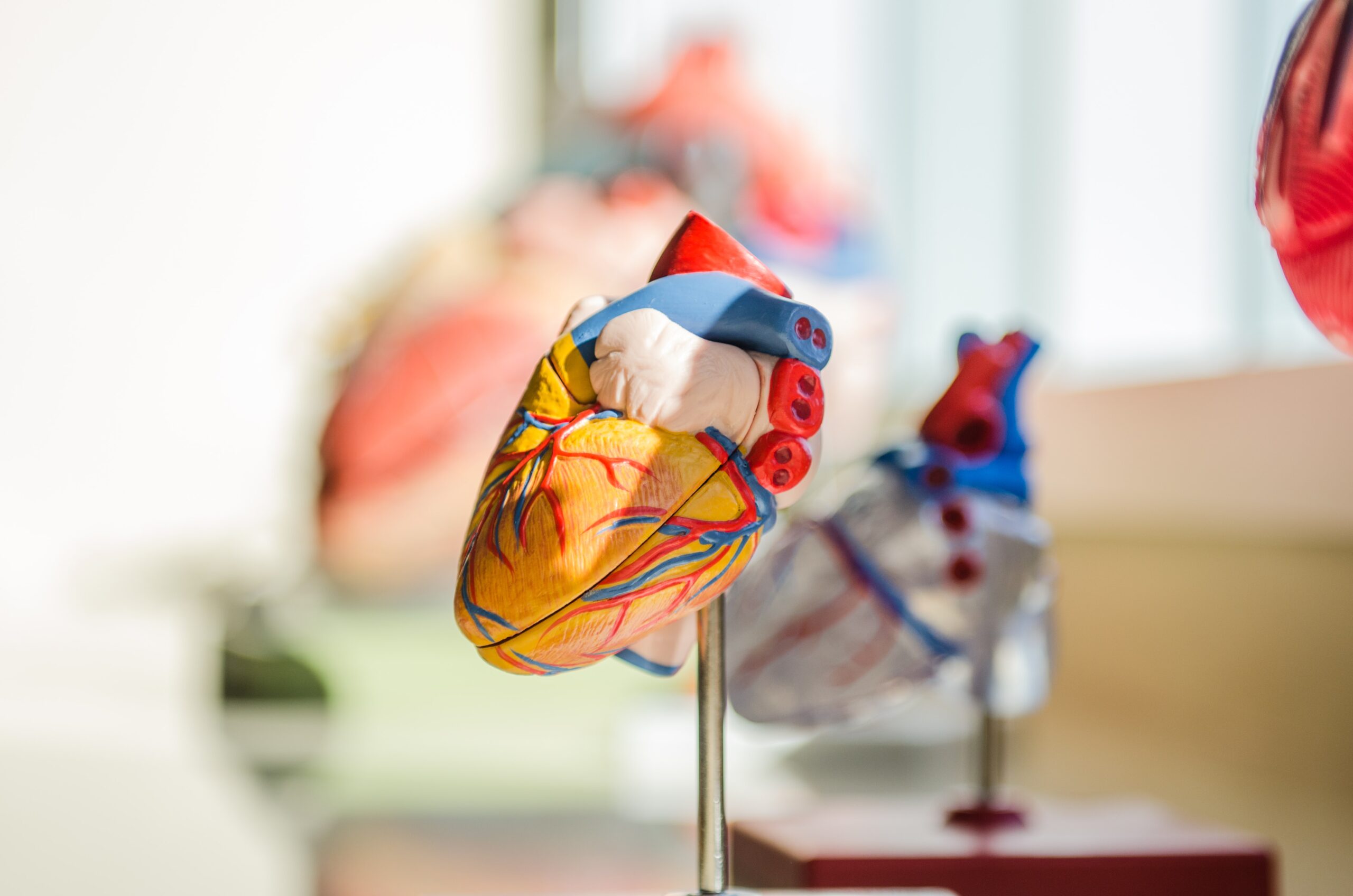It Happened Without Warning
We’ve all heard this devastating statement at some point in our lives. A family member, coworker or acquaintance suddenly experiences a stroke, heart attack, or even sudden death. So many questions arise. People whisper. How could this have happened? What went wrong? Why didn’t their doctor see this coming? He or she seemed so healthy, how is this possible?
Our next thoughts reflect on our loved ones, and ourselves. Are we healthy enough? Could that happen to us? How can we protect ourselves? What could have caused these catastrophic health conditions? Tragically, these unfortunate individuals may have been afflicted with what doctors call “the silent killer”, better known as arterial stiffness. Many victims are never aware that they are at risk until they experience their first heart attack from occluded vessels. It has been estimated that 60-70 million Americans harbor this silent killer.
What is arterial stiffness?
Arterial stiffness is a painless degenerative process. It affects the flexibility and elasticity of our arteries, making them stiffer as we age. Damage to the arteries’ smooth interior surface from inflammation causes it to harden. Fat and cholesterol deposit in the walls of arteries, causing plaques to form. Over time, these plaques can narrow or completely block the arteries resulting in major health complications throughout the body. Shockingly, this condition can begin when we are in early adolescence, creating havoc in our arteries without our knowledge. Early changes are quite difficult to detect. If this health issue is not properly addressed, the damage may reach critical levels, promoting a lethal level of plaque as we approach midlife.
Arterial stiffness is strongly associated with elevated blood pressures (hypertension) and condition called atherosclerosis. Atherosclerosis is the medical term for the dangerous accumulation of plaque in the large arteries. Elastic and flexible arteries are necessary for proper blood flow. Non-flexible or hardened plaque filled arteries cause our hearts to work much harder, constantly forcing blood against the increasing pressure of stiff and partially occluded blood vessels. Pumping this strenuously can cause the muscular walls of the heart to become larger in order to adjust to the excessive workload. This increase in heart muscle size and mass requires additional blood flow to bring nourishing oxygen to power this important organ. If the blood flow is compromised, because we have stiff arteries full of plaque…we are in trouble.
What are the dangers of arterial stiffness?
Arterial stiffness creates an inability to deliver critical oxygen to our tissues. As our arteries narrow due to plaque, we are unable to move oxygen rich blood to all the organs and tissues of the body. These circulatory issues severely compromise the entire body. The kidneys may become damaged, eventually necessitating dialysis for support. Risk becomes elevated for a variety of cardiovascular complication including blood clots, occlusion of the blood vessels and even sudden death due to plaque rupture. Stiff blood vessels compromise heart function, vascular integrity and neurological function. Arterial stiffness is a growing epidemic affecting countless unsuspecting individuals. Health practitioners should make a sincere effort address this issue during preventative checkups.
Complications related to arterial stiffness:
-Angina (chest pain)
-Heart attack
-Congestive Heart Failure
-Cognitive decline
-Transient Ischemic Attack (prelude to a stroke-sudden numbness or weakness in arms or legs, difficulty speaking or slurred speech, temporary loss of vision in one eye, or drooping muscles in your face)
-Stroke
-Peripheral artery disease (pain in extremities due to poor circulation)
-Aneurysms
-Kidney Disease
What causes arterial stiffness?
Risk factors for arterial stiffness are quite numerous and everyone has at least one. Aging! Getting older contributes to hardening of the arteries. The shearing force of the blood running through the vessels will cause wear and tear over time. Other significant contributions to this issue include the following:
-Hypertension
-Elevated Cholesterol Levels
-Elevated Triglycerides (fat in the blood)
-Smoking/ Tobacco Chew
-Diabetes, Insulin resistance (elevated blood sugars cause structural damage)
-Metabolic Syndrome
-Obesity
-Fatty Liver (NAFLD)
-Post chemotherapy complication
-Inflammatory conditions arising from the following: unhealthy gut microbiome, heavy metal or environmental toxicity, elevated homocysteine levels in the blood due to altered MTHFR genetic variations, inflammatory diseases such as Lyme, rheumatoid arthritis, viral, fungal or bacterial infections.
– Low levels of Silica- essential for collagen formation necessary for supple arteries. Silica is effective in removing plaque from artery walls. Researchers found arteriosclerotic artery walls showed excessively high levels of calcium and lower than normal levels of silica. Silica has the added benefit of helping to remove aluminum from the body. Aluminum is a heavy metal which causes damage to blood vessel walls.
-Decreased nutrient assimilation due to poor gut health- vitamins and minerals are necessary for the detoxification of harmful substances known to damage blood vessels. Proper nutrition helps stabilize blood sugars, support the immune system and repair inflamed arteries and tissues.
How can I protect myself? What if I already have this disorder?
Good news! There are many ways to address these risk factors and protect our arteries from further damage. Practicing good health habits will go a long way to keeping our blood vessels healthy and decreasing our vulnerability to disease, illness, and permanent disability. Keep in mind, anything causing inflammation in our bodies, will eventually result in arterial stiffness by damaging blood vessel walls.
Healthy lifestyle changes to prevent arterial stiffness include the following:
- Quitting smoking;
- Maintaining a healthy weight;
- Eating a healthy diet low in processed carbohydrates and hydrogenated fats. Fiber, potassium, zinc, selenium magnesium, omega 3 fatty acids, and polyphenols (like resveratrol) found in fruits and vegetables all show benefits for preventing and reducing arterial stiffness. Research shows daily magnesium supplementation of 350 mg for 24 weeks in overweight and obese adults reduced arterial stiffness. Caution: Excessive caffeine and sodium increased hardening of the arteries;
- Regular exercise- walking briskly 30 minutes a day assists with weight control, and improves blood flow and oxygenation of organs and tissues. Research shows changes to the arterial stiffness can be seen in as little as 4 weeks of consistent aerobic exercise;
- Avoiding exposure to heavy metals and environmental toxins. Lead, mercury, cadmium and aluminum all cause inflammation and damage to blood vessel walls resulting in atherosclerosis;
- Probiotics and prebiotics maintain a healthy microbiome. These beneficial organisms help us remove harmful toxins and protect us from intestinal inflammation.
How stiff are my arteries? How will I know if I am in danger?
You may be wondering if you are affected by this condition. MenlaScan is here to help! MenlaScan is a cutting-age technology capable of non- invasively measuring arterial stiffness and numerous physiological markers that contribute to blood vessel disease. MenlaScan utilizes pulse wave velocity (PWV) data analysis, the current gold standard for the measurement of arterial stiffness. PWV is an important biomarker of vascular damage and assists in determining cardiovascular risk. Elevated PWV indicates a significant risk for stroke, heart attack, heart failure and overall mortality. Your Menalscan practitioner can evaluate various diverse markers to help identify arterial stiffness and related issues.
Menlascan provides information on the following health parameters associated with arterial stiffness:
- Full Body composition- additional markers for visceral fat levels which is strongly associated with arterial damage;
- Arterial stiffness- markers for stiffness of the aorta, coronary and carotid vessels;
- Cardiac system evaluation for signs of increased resistance in the blood vessels (vascular resistance). Calculates the stress related workload for the heart;
- Identifies markers for enlargement of the cardiac ventricle indicating hypertrophy (enlargement) of the heart muscle;
- This is related to the pump force necessary for ejection of blood and degree of arterial stiffness;
- Diabetes risk assessment – insulin resistance, beta cell function, metabolic syndrome;
- Assessment of the endothelial lining on the interior surface of blood vessels. Damage to these crucial cells causes atherosclerosis lesions to form;
- Estimated biological age of blood vessels;
- Indicators for deficiencies of nutrients crucial to vascular health, such as silica and sulfur;
- Indicators of depleted levels of nutrients necessary to normalize homocysteine levels in the blood. Elevated homocysteine levels can damage blood vessel walls. Adequate levels of folic acid, B12 and B6 are critical for proper levels. Genetic variations can predispose certain people dangerous levels of homocysteine;
- Identifies Heart Rate Variability (HRV);
- Increased arterial stiffness is associated with reduced heart rate variability;
- Records Mean Arterial Pressure (MAP)- Vascular stiffening results in widening of the pulse pressure, which can profoundly influence blood vessel and heart health;
- Markers for liver inflammation and dysfunction;
- Other information related to how arterial stiffness can affect the overall state of the liver, digestive system and the brain.
Arterial Stiffness need not be the “silent killer” any longer. Quick, easy, painless preventative testing and monitoring is available. Arterial stiffness is an excellent indicator and predictor of cardiovascular morbidity and mortality. MenlaScan is a non-invasive tool for identifying barriers to healing, monitoring for positive changes, and establishing health goals.
Health assessment, awareness and prevention are the keys to a long and healthy life. Protect yourself!



